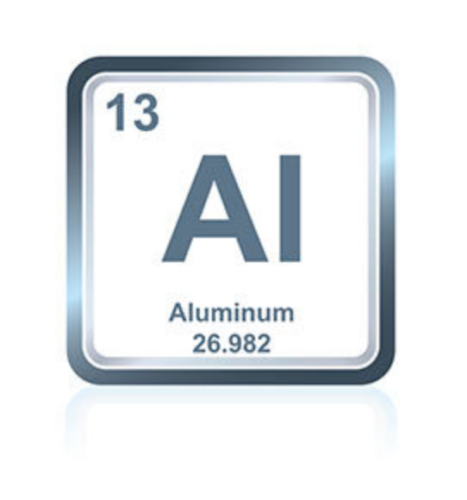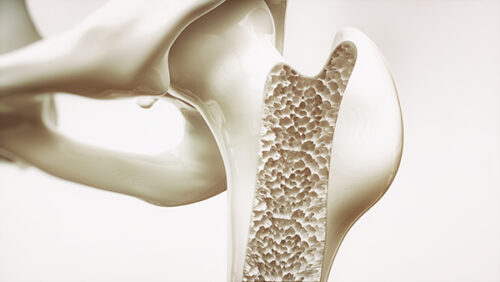When Friends Ask: Why Do You Avoid Adding Vegetable Oils?
Updated June 23, 2021
By John McDougall
Begin by telling them, “The fat you eat is the fat you wear,” and remind them that there is nothing attractive about wearing olive, flaxseed, or corn fat.* For this reason alone, most of your friends and family should steer clear of so-called “healthy oils” derived from plant-foods. Gaining weight can be expected from consuming high-fat whole foods, such as nuts, seeds, avocados and olives, as well as “free oils,” which are usually purchased in bottles. However, the shared propensity for weight gain is where the similarity between unprocessed plant foods and free oils ends.
I consider whole foods, even those with high concentrations of fats, to be health-promoting. However, people interested in losing weight should avoid nuts, nut butters, seeds, seed spreads, avocados, and olives, since they all serve as sources of concentrated, easy to consume, calories. When I was growing up we had nuts in their shells as a special treat for Christmas. Now these same nuts come bare-naked, salted, and sometimes roasted in additional oils—and the twist of the lid of the jar brings effortlessly to your lips (and your hips) handfuls of fat-laden, calorie-concentrated rich food. These same foods, however, may be a welcome addition for growing children and active adults. But they should be used sparingly by most of us.
Chemically speaking, free oils are chains of carbon found in a purified state. Extraction processes have removed all of the other ingredients of the whole food. Thus, free oils are no longer intermixed with the naturally-designed and balanced environment of proteins, carbohydrates, vitamins, minerals, and ten thousand other chemicals found originally in the plants. Free-oils are not food—at best these are medications, causing some desirable effects, and at worst; they are serious toxins causing disease.
*The main distinction between fats and oils is whether they’re solid or liquid at room temperature.
Oils Are Essential for Health
The human body can synthesize from raw materials almost all of the organic compounds needed to build and maintain itself. However, there are a few basic elements that it cannot synthesize. These must be obtained from the food, and include 11 vitamins, 8 amino acids, and 2 kinds of fat. Fortunately, except for two vitamins (vitamin D from the sun and B12 from bacteria), all of these essential nutrients are made by plants and found in abundant quantities in a diet based on whole starches, vegetables, and fruits.
Fats are made of chains of carbon which differ in length, and the number and positions of double bonds (a chemical term for a dual linkage between carbon atoms). Animals cannot create double bonds after the third and sixth carbon on the chain. Only plants can make this arrangement. The result is that only plants can synthesize omega-3 and omega-6 fats. These are referred to as “essential fats.” We, like all other animals, must get these essential fats directly by eating plants or indirectly by eating animals that ate plants and stored these essential fats in their tissues. For example, fish store the omega-3 fats made by algae—fish cannot synthesize this kind of fat.
Common Fats (fatty acids)
Linoleic acid is from plants and is the most common kind of omega-6 fat consumed by people.
Gamma linolenic acid is an omega-6 fat from plants, and in an isolated form, is used as a medication.
Alpha linolenic acid is from plants and is the most common omega-3 fat consumed.
Eicosapentaenoic acid (EPA) is an omega-3 fat made by animals, including fish, from alpha linolenic acid.
Docosahexaenoic acid (DHA) is an omega-3 fat made by animals, including fish, from alpha linolenic acid.
| Linoleic | Alpha Linoleic | Gama Linoleic | Eicosapentaenoic |
| safflower | flax | borage | cold water marine fish |
| sunflower | hemp | black currant seed | |
| hemp seed | canola (rapeseed) | primrose | |
| soybeans | soybeans | ||
| walnut | walnut | ||
| pumpkin | leafy green vegetables | ||
| sesame | purslane | ||
| flax | perilla |
Essential Fat Deficiency Is Essentially Unknown
In our bodies these plant-derived, essential fats are used for many purposes including the formation of all cellular membranes, and the synthesis of powerful hormones, known as eicosanoids (prostaglandins, leukotrienes, and thromboxanes). Our requirement is very tiny, and even the most basic diets provide sufficient linoleic acid to meet our requirement, which is estimated to be 1–2% of dietary energy.1 Therefore, in practical terms, a condition of “essential fatty acid deficiency” is essentially unknown in free-living populations.*
Essential fatty acid deficiency is seen when sick patients are fed intravenously by fat-free parenteral nutrition. In these cases, correction of the deficiency can be accomplished by applying small amounts of soybean or safflower oil to their skin—giving you some idea of the small amount of oil we require.2 Plan on your diet of basic plant-foods supplying an abundance of essential fats delivered in perfectly designed packages, functioning efficiently and safely.
*Some people talk about a “relative deficiency” of essential fats created by a large intake of saturated animal fats, synthetic trans fats (as found in margarine and shortenings), and/or omega-6 fats compared to their intake of omega-3 fats, and they believe many of our common chronic diseases are the result of this imbalance.1 This is quite different from true essential fatty acid deficiency which would result in: loss of hair, scaly dermatitis, capillary fragility, poor wound healing, increased susceptibility to infection, fatty liver, and growth retardation in infants and children.1
Free Oils as Medications
When the oils are removed from their natural environments—for example, from the seeds of corn, soybeans, safflowers, or flax, or the fruit of an olive or avocado—they are no longer a food. Yes, they do supply concentrated calories—but the rest of the original nutrition found in the plant parts is absent. In this state, the free oils can display powerful pharmacological effects—some beneficial and some harmful. This would be analogous to removing vitamins and minerals from plants and making supplements. I don’t call supplements food, do you? However, the effects of concentrated, isolated oils are usually even more potent than those seen with supplements.
Omega-3 and omega-6 oils inhibit the aggregation of platelets, slowing down the coagulation of the blood—thus these oils “thin the blood.” This well-known property can be beneficial for reducing the risk of a blood clot forming in the heart arteries—the cause of a heart attack. A common practice is to take omega-3 (fish or flaxseed) pills to reduce the risk of heart disease.3
Omega-3 and omega-6 oils suppress the immune system, reducing inflammation. As medications they have been tried in autoimmune conditions such as rheumatoid arthritis, Crohn’s disease, ulcerative colitis, psoriasis, lupus erythematosus, multiple sclerosis, eczema, and psoriasis.4 Other disorders, such as migraine headaches, Alzheimer’s disease, and PMS have also been treated. The reports of benefits are variable and often questionable; as a result, their use has not been well accepted in most medical practices.
As silly as this may sound, it has been suggested that eating essential fat may cause people to lose weight. However, a 12-week, double-blind evaluation of evening primrose oil as an “anti-obesity agent” on 100 women found no significant difference in the weight loss achieved by those taking primrose oil compared with placebo.5 Fats (and oils) are the metabolic dollar stored for the day when food is no longer available. Even “healthy oils” are moved from the spoon to the flesh with such efficiency that you should assume every drop you eat makes that journey.
Free Oils as Toxins
As with all other medications, there are adverse effects from consuming free oils, when added from a bottle to meals or taken as pills. The most obvious adverse effect is people gain weight when they eat even so-called “healthy oils,” like olive oil. When 54 obese women in a Mediterranean country were studied, these women were found to be following a diet low in carbohydrates (35% of the calories) and high in fats (43% of the calories). Of the total calories from fat, 55% came from olive oil.6 My point: a Mediterranean diet which is loaded with olive oil, rather than fruits and vegetables, will make you fat.
Omega-3 and omega-6 oils thin the blood, which make a person more susceptible to bleeding.7,8 This side effect from taking essential oils to prevent a heart attack could become fatal after an automobile accident or if an artery in the brain were to rupture, such as occurs in a hemorrhagic stroke.
Do Vegetable Oils Really Prevent Heart Disease?
Common knowledge is vegetable oils are protective against heart disease, but there is evidence that questions the real life benefits:
- Serial angiograms of people’s heart arteries show that all three types of fat-saturated (animal) fat, monounsaturated (olive oil), and polyunsaturated (omega-3 and -6 oils)—were associated with significant increases in new atherosclerotic lesions over one year of study.9 Only by decreasing the entire fat intake, including poly- and monounsaturated-oils, did the lesions stop growing.
- Dietary polyunsaturated oils, both the omega-3 and omega-6 types, are incorporated into human atherosclerotic plaques; thereby promoting damage to the arteries and the progression of atherosclerosis.10
- A study in African green monkeys found when saturated fat was replaced with monounsaturated fat (olive oil), the olive oil provided no protection from atherosclerosis.11
- One of the most important clotting factors predicting the risk of a heart attack is an elevated factor VII. All five fats tested—rapeseed oil (canola), olive oil, sunflower oil, palm oil, and butter—showed similar increases in triglycerides and clotting factor VII.12
Most likely, the heart benefits of a Mediterranean diet are due to it being a nearly vegetarian diet. The Mediterranean diet is a good diet in spite of the olive oil.13Omega-3 and omega-6 oils could benefit people with autoimmune disorders. On the other hand, excessive intake of these fats may actually aggravate these disorders.15 More importantly, we need our immune system functioning at full capacity to fight off infections and cancer. Free oils have been demonstrated to suppress many natural microbe killing mechanisms (with a marked decrease in cytokine, tumour necrosis factor-alpha and interferon-gamma).16 Free oils may be toxic to the body tissues. Both omega-3 and omega-6 fats are associated with an increased risk of opacification of the lens of the eye, resulting in cataracts.14
Research on animals suggests the omega-6 variety of oils is very cancer-promoting and the omega-3 variety may be beneficial for cancer prevention.17 However, this may not be the case. In one animal experiment on colon cancer, a fish oil diet and a safflower oil diet induced, respectively, 10- and 4-fold more metastases (number) and over 1000- and 500-fold more metastases (size) than were found in the livers of rats on the low-fat diet.18 Other, animal experiments also have shown essential fats to be cancer promoting.19,20 Most importantly, population studies tell us that, worldwide, the lower the total fat intake, the less the risk of common cancers, such as breast, colon and prostate.21-23
Practical Ways to Eliminate Oils in Cooking
Don’t add vegetable oils when cooking
Use non-stick pots and pans
Brown or soften vegetables in water
Sauté with non-fat liquids
Replace oil in baking with fruit or tofu
Use commercial fat-replacers
Lighten texture with carbonated water
Detailed information on cooking without oil
The Final Step
Not a day goes by that I don’t hear someone say to me, “My diet is completely vegan, but I am still 40 pounds overweight.” The oily sheen on her face and hair are a clear give away that she hasn’t been willing to stop adding the half cup of extra virgin olive oil to her spaghetti sauce. Many people fall short of their health and appearance goals because they have yet to eliminate all the added vegetable oils from their cooking. Eating out is a major stumbling block. More often than not, even after using the best communication skills with the waiter, the diner plate still glistens with an oil slick. Avoiding free vegetable oils is the last important hurdle for people seeking better health. Take the final step—just say “No” to these really unessential added oils.
References:
1) Sanders TA. Essential fatty acid requirements of vegetarians in pregnancy, lactation, and infancy. Am J Clin Nutr. 1999 Sep;70(3 Suppl):555S-559S.
2) Marcason W. Can cutaneous application of vegetable oil prevent an essential fatty acid deficiency? J Am Diet Assoc. 2007 Jul;107(7):1262.
3) Mozaffarian D. Does alpha-linolenic acid intake reduce the risk of coronary heart disease? A review of the evidence. Altern Ther Health Med. 2005 May-Jun;11(3):24-30;
4) Namazi MR. The beneficial and detrimental effects of linoleic acid on autoimmune disorders. Autoimmunity. 2004 Feb;37(1):73-5.
5) Haslett C, Douglas JG, Chalmers SR, Weighhill A, Munro JF. A double-blind evaluation of evening primrose oil as an antiobesity agent. Int J Obes. 1983;7(6):549-53.
6) Calle-Pascual AL, Saavedra A, Benedi A, Martin-Alvarez PJ, Garcia-Honduvilla J, Calle JR, Maranes JP. Changes in nutritional pattern, insulin sensitivity and glucose tolerance during weight loss in obese patients from a Mediterranean area. Horm Metab Res. 1995 Nov;27(11):499-502.
7) Allman MA, Pena MM, Pang D. Supplementation with flaxseed oil versus sunflowerseed oil in healthy young men consuming a low fat diet: effects on platelet composition and function. Eur J Clin Nutr. 1995 Mar;49(3):169-78.
8) Nordstrom DC, Honkanen VE, Nasu Y, Antila E, Friman C, Konttinen YT. Alpha-linolenic acid in the treatment of rheumatoid arthritis. A double-blind, placebo-controlled and randomized study: flaxseed vs. safflower seed. Rheumatol Int. 1995;14(6):231-4.
9) Blankenhorn DH, Johnson RL, Mack WJ, el Zein HA, Vailas LI. The influence of diet on the appearance of new lesions in human coronary arteries. JAMA. 1990 Mar 23-30;263(12):1646-52.
10) Felton CV, Crook D, Davies MJ, Oliver MF. Dietary polyunsaturated fatty acids and composition of human aortic plaques. Lancet. 1994 Oct 29;344(8931):1195-6.
11) Rudel LL, Parks JS, Sawyer JK. Compared with dietary monounsaturated and saturated fat, polyunsaturated fat protects African green monkeys from coronary artery atherosclerosis. Arterioscler Thromb Vasc Biol. 1995 Dec;15(12):2101-10.
12) Larsen LF, Bladbjerg EM, Jespersen J, Marckmann P. Effects of dietary fat quality and quantity on postprandial activation of blood coagulation factor VII. Arterioscler Thromb Vasc Biol. 1997 Nov;17(11):2904-9.
13) Keys A. Mediterranean diet and public health: personal reflections. Am J Clin Nutr. 1995 Jun;61(6 Suppl):1321S-1323S.
14) Lu M, Taylor A, Chylack LT Jr, Rogers G, Hankinson SE, Willett WC, Jacques PF. Dietary fat intake and early age-related lens opacities. Am J Clin Nutr. 2005 Apr;81(4):773-9.
15) Namazi MR. The beneficial and detrimental effects of linoleic acid on autoimmune disorders. Autoimmunity. 2004 Feb;37(1):73-5.
16) Purasiri P, Mckechnie A, Heys SD, Eremin O. Modulation in vitro of human natural cytotoxicity, lymphocyte proliferative response to mitogens and cytokine production by essential fatty acids. Immunology. 1997 Oct;92(2):166-72.
17) Sauer LA, Blask DE, Dauchy RT. Dietary factors and growth and metabolism in experimental tumors. J Nutr Biochem. 2007 Apr 4;
18) Griffini P. Dietary omega-3 polyunsaturated fatty acids promote colon carcinoma metastasis in rat liver. Cancer Res. 1998 Aug 1;58(15):3312-9.
19) Coulombe J, Pelletier G, Tremblay P, Mercier G, Oth D. Influence of lipid diets on the number of metastases and ganglioside content of H59 variant tumors. Clin Exp Metastasis. 1997 Jul;15(4):410-7.
20) Klieveri L. Promotion of colon cancer metastases in rat liver by fish oil diet is not due to reduced stroma formation. Clin Exp Metastasis. 2000;18(5):371-7.
21) Carroll KK. Experimental evidence of dietary factors and hormone-dependent cancers. Cancer Res. 1975 Nov;35(11 Pt. 2):3374-83.
22) Rao GN. Influence of diet on tumors of hormonal tissues. Prog Clin Biol Res. 1996;394:41-56.
23) Weisburger JH. Worldwide prevention of cancer and other chronic diseases based on knowledge of mechanisms. Mutat Res. 1998 Jun 18;402(1-2):331-7.
Recommended Articles

Alzheimer's Disease is Caused by Chronic Aluminum Poisoning

Making the Change to a Healthy Lifestyle Work, Part 1 - Why Change?







